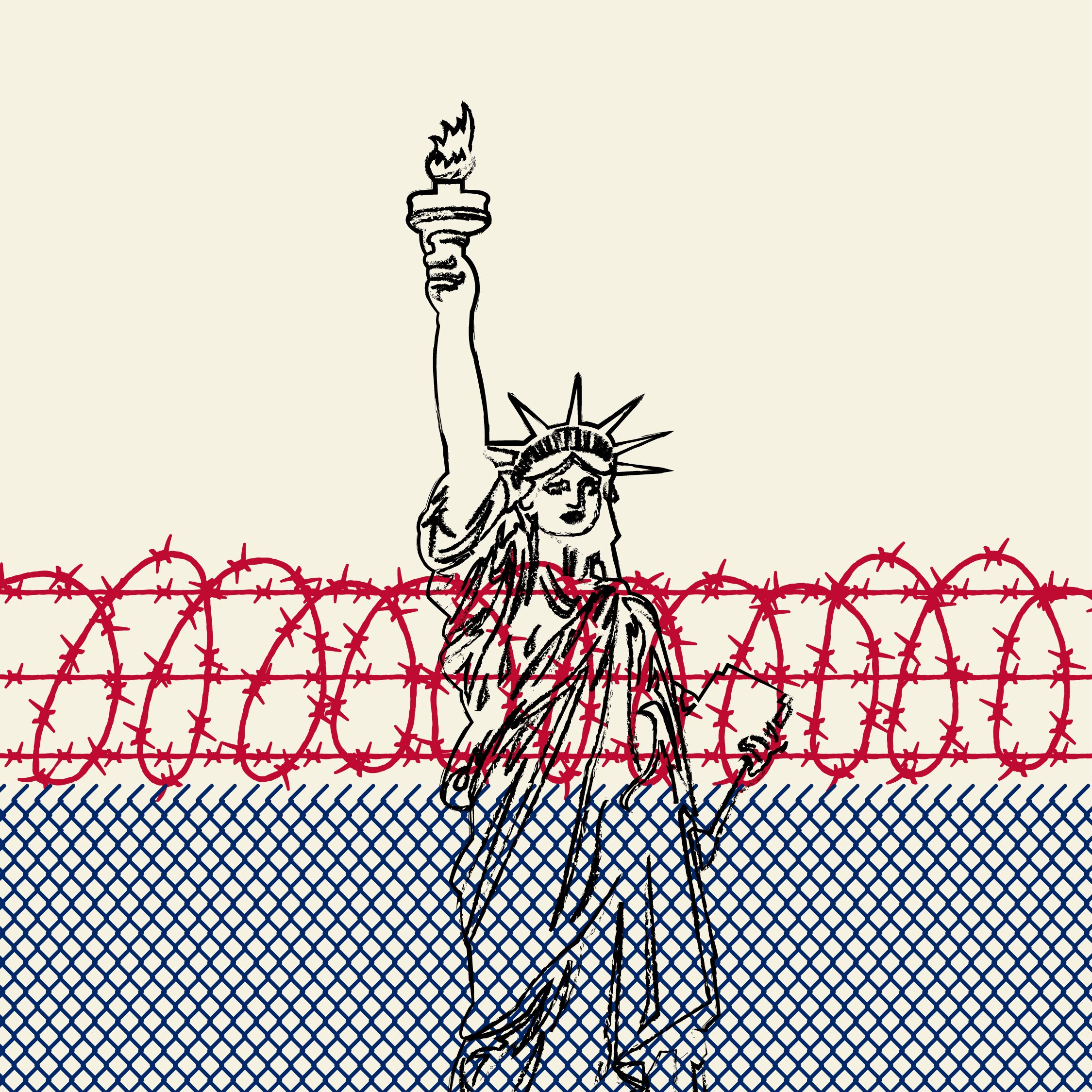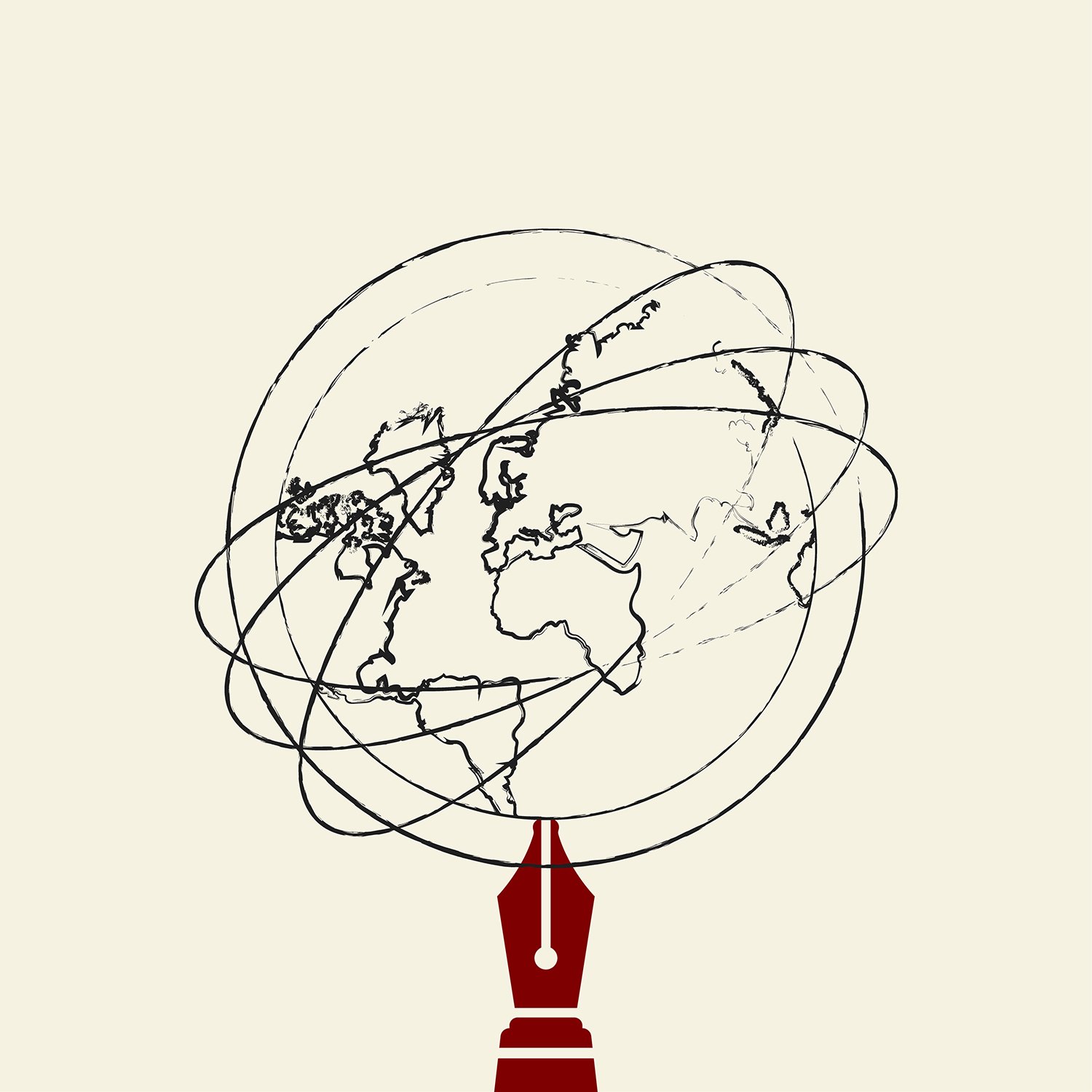‘I Don’t Know What They’ll Do With Us’
For immigrants from Latin America in New York, Donald Trump’s victory ignites anxiety.
NOVEMBER 7, 2024
Early in the morning of November 6, Laura’s 6-year-old son came to his mother with a question.
“Did the woman win?” he asked.
“No, my love,” she replied.
“Where are we going to go now?” he said.
Laura tried not to cry. They were not going anywhere, she said. Everything would be fine. Their family was safe.
Later that afternoon, less than 24 hours after Donald Trump won the election, Laura told me she wasn’t sure what she had told her son would be true for long. “I don’t know what they’ll do with us,” she said when we met at the Midtown asylum shelter where she and her family are staying. “There’s so much hatred against us, it’s such an awful anxiety we’re living under.”
Laura, who asked to use a pseudonym to protect her status in the U.S., emigrated with her family from Venezuela at the beginning of 2024. They arrived in spring, amid a highly divisive election campaign in which immigration — or more precisely, how to restrict it — had become a topic of fierce debate and a core part of Trump’s platform.
Like Laura and her family, many newly arrived immigrants from Latin America I spoke to at shelters in New York before and after the election told me they felt paralyzed, caught between elation at having arrived and dread at what might come next.
The implications of Trump’s victory for immigrant communities in the U.S. are hard to understate. During the campaign, he promised to crack down on illegal border crossings, limit access to asylum at the U.S.-Mexico border and deport record numbers of immigrants. He also said he would seek to end automatic citizenship for children of immigrants born in the U.S. and revoke protected legal status for Venezuelans, among others.
Like Laura and her family, many newly arrived immigrants from Latin America I spoke to at shelters in New York before and after the election told me they felt paralyzed, caught between elation at having arrived and dread at what might come next.
Miguel, a welder from Venezuela who also asked to use a pseudonym, said he watched the results closely from the room that he shares with his son, who is five. Over the phone on Wednesday afternoon, he told me in a whisper that he was staying on high alert. “I’m waiting to hear what my friends in Florida say, whether they start deporting anyone.”
✺
Like many others, Laura, Miguel and their families are staying at the Roosevelt Hotel, which the New York City government converted into an asylum shelter in May 2023. The hotel, which counts 850 rooms for asylum seekers and 175 rooms for families with children, currently houses several thousand people. Initially, staff made efforts to keep the shelter, which is right next to Grand Central Station, discreet. Arrivals were hurried inside, and the press was held at bay by private security. Over time, residents began to settle in: Children were picked up by school buses and adults gathered outside to talk. Some took on odd jobs in delivery or housekeeping around the city.
During the weeks leading up to the election, many told me they were living with a steady hum of anxiety, dreading a Trump victory but feeling powerless to alter the outcome. On social media and in the news, they read about the Republican candidate’s threats against “illegal” immigrants and his promises of mass deportations. Many considered their options, but most feared losing what they had struggled so hard to achieve. They had finally arrived in the U.S. and were about to complete the necessary paperwork to enter its labor market. Leaving now was, for most, off the table.
Laura, who worked in business administration in Venezuela before they fled, and her husband, an artisan, are willing to work any job, she said. They hope to eventually be able to rent their own place. Both of their kids, ages six and 12, are enrolled in school in the city.
They are part of a wave of nearly 210,000 migrants who have arrived in New York City since August 2022 — most of them from Latin American countries like Venezuela, Ecuador and Colombia as well as from Haiti. Starting in mid 2022, nearly 15,000 people were bused to the city by Texas Governor Greg Abbott as part of a political strategy to punish Democratic politicians for national border policies, which Abbott argued threaten the country’s security. The buses stopped running in July after a major drop in migrants crossing the border.
Having reported on immigration from Latin America to the U.S. for the past few years, I’ve spoken with dozens who have crossed or tried to cross the border. Some fled economic hardship, others political persecution. Many endured dangerous journeys, crossing the deadly Darien Gap or facing gang violence and police brutality in Central America and Mexico. Yet all of them, without exception, shared a common goal: to reach the U.S. in search of a better future. For many, being used as pawns in a political strategy has underscored just how tenuous that future feels — even in a city known for its welcoming spirit.
“I don’t have a place to live, I cannot work because I don’t have a permit, I’m a single father,” he said. “Fear is all over me.”
Trump has specifically blamed these newcomers for an alleged increase in crime rates — claiming crime was “in their genes” — and for putting American jobs at risk. In fact, the number of crimes committed by non-citizens has dropped over the past two years, and border states like Texas have registered higher conviction rates for homicide among native-born Americans. The American Immigration Council noted last month that “mass deportations would cause significant labor shocks across multiple key industries, with especially acute impacts on construction, agriculture, and the hospitality sector.”
Laura said the rhetoric of Trump’s campaign has cast a shadow on her family’s plans. “We’ve heard so many things, we don’t know what’s going to happen for real,” she told me. “We don’t know the laws in this country, the changes and democratic transitions, we have so many doubts.”
✺
A week before the election, Miguel told me he was considering a move to Canada if Trump won. “I’ve committed no crimes,” he said. “I’m just waiting to see if they’ll give me a chance here.” It was Halloween, and his son had just come into the room holding a bag of candy.
It’s a refrain I heard repeatedly before the election from other immigrants from Latin America who had recently arrived in New York — each clinging to the hope of a fair chance that brought them this far.
The day after the election, though, Miguel told me over the phone that his overwhelming feeling was one of anxiety. If the government decides to deport him, or he is forced out of the shelter, he has nowhere to go. “I don’t have a place to live, I cannot work because I don’t have a permit, I’m a single father,” he said. “Fear is all over me.”
His voice trailed off, lost in the city’s relentless noise. In cafés, bars and on street corners, people debated whether Trump would, indeed, make good on his pledge to deport millions of people like Miguel. With control of the Senate and the courts (the House of Representatives was still up in the air at the time of writing), it seems as though he will be able to do as he pleases. For people like Laura and Miguel, who risked everything to build a future in the U.S., the uncertainty of what comes next means once again putting life, and dreams of a safer, better one, on hold.



